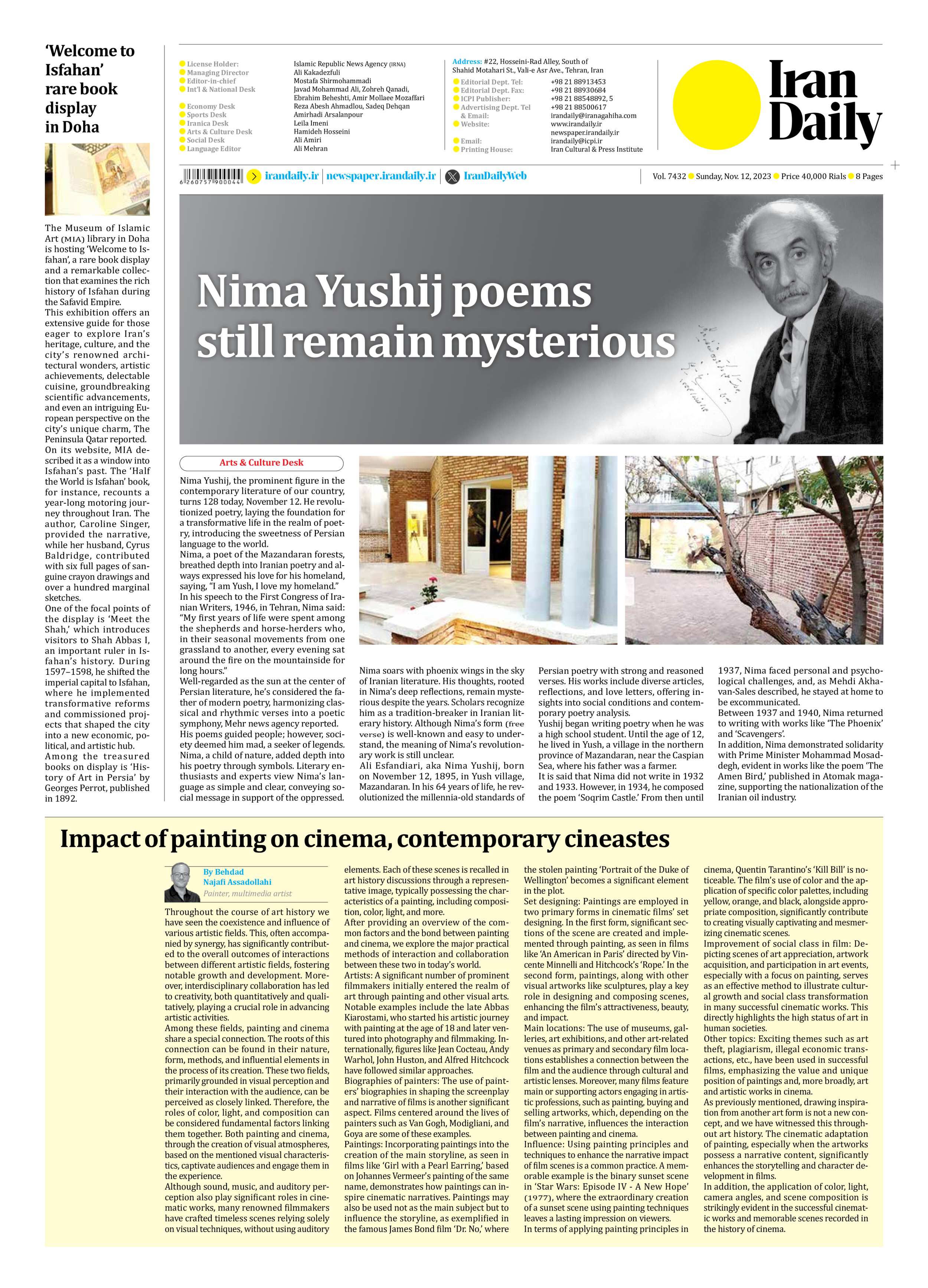
Nima Yushij poems still remain mysterious
Nima Yushij, the prominent figure in the contemporary literature of our country, turns 128 today, November 12. He revolutionized poetry, laying the foundation for a transformative life in the realm of poetry, introducing the sweetness of Persian language to the world.
Nima, a poet of the Mazandaran forests, breathed depth into Iranian poetry and always expressed his love for his homeland, saying, “I am Yush, I love my homeland.”
In his speech to the First Congress of Iranian Writers, 1946, in Tehran, Nima said: “My first years of life were spent among the shepherds and horse-herders who, in their seasonal movements from one grassland to another, every evening sat around the fire on the mountainside for long hours.”
Well-regarded as the sun at the center of Persian literature, he’s considered the father of modern poetry, harmonizing classical and rhythmic verses into a poetic symphony, Mehr news agency reported.
His poems guided people; however, society deemed him mad, a seeker of legends.
Nima, a child of nature, added depth into his poetry through symbols. Literary enthusiasts and experts view Nima’s language as simple and clear, conveying social message in support of the oppressed.
Nima soars with phoenix wings in the sky of Iranian literature. His thoughts, rooted in Nima’s deep reflections, remain mysterious despite the years. Scholars recognize him as a tradition-breaker in Iranian literary history. Although Nima’s form (free verse) is well-known and easy to understand, the meaning of Nima’s revolutionary work is still unclear.
Ali Esfandiari, aka Nima Yushij, born on November 12, 1895, in Yush village, Mazandaran. In his 64 years of life, he revolutionized the millennia-old standards of Persian poetry with strong and reasoned verses. His works include diverse articles, reflections, and love letters, offering insights into social conditions and contemporary poetry analysis.
Yushij began writing poetry when he was a high school student. Until the age of 12, he lived in Yush, a village in the northern province of Mazandaran, near the Caspian Sea, where his father was a farmer.
It is said that Nima did not write in 1932 and 1933. However, in 1934, he composed the poem ‘Soqrim Castle.’ From then until 1937, Nima faced personal and psychological challenges, and, as Mehdi Akhavan-Sales described, he stayed at home to be excommunicated.
Between 1937 and 1940, Nima returned to writing with works like ‘The Phoenix’ and ‘Scavengers’.
In addition, Nima demonstrated solidarity with Prime Minister Mohammad Mosaddegh, evident in works like the poem ‘The Amen Bird,’ published in Atomak magazine, supporting the nationalization of the Iranian oil industry.







